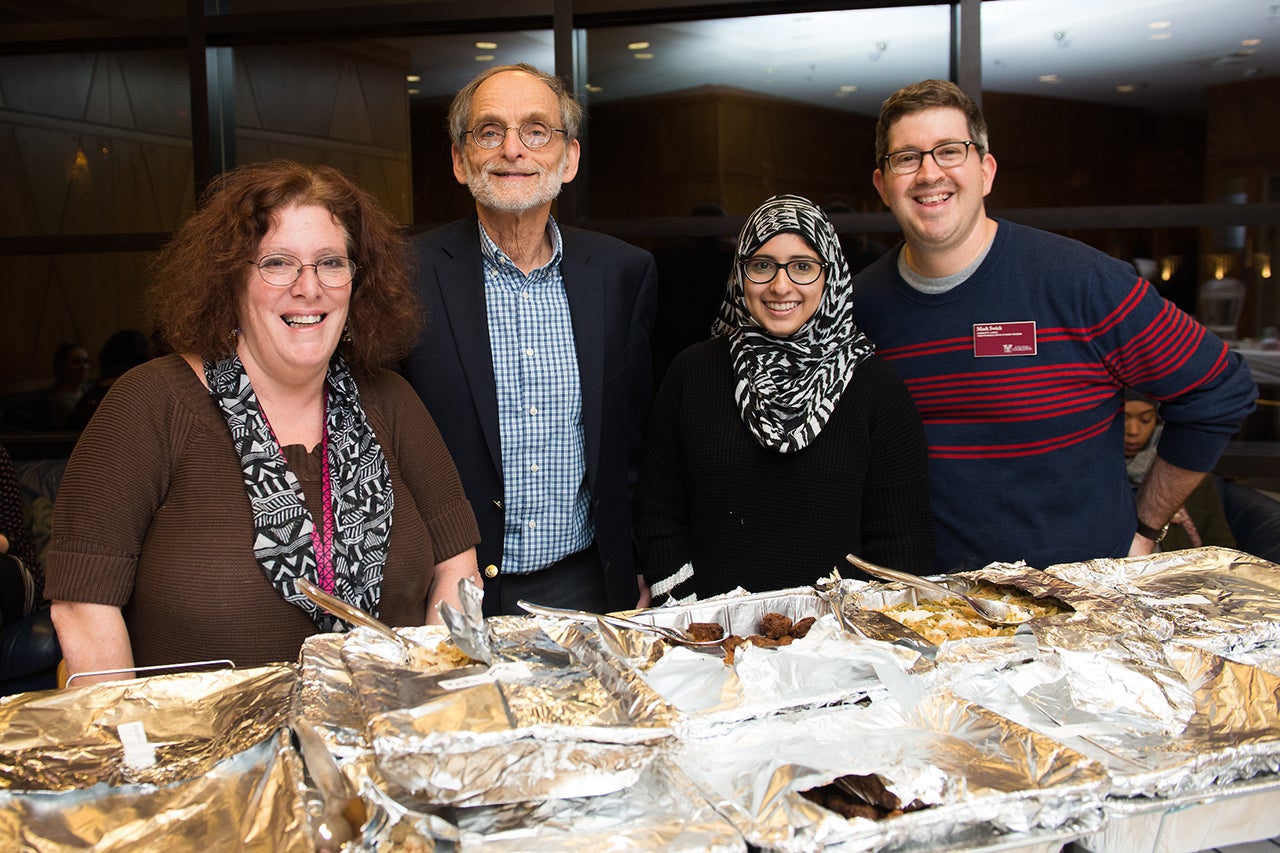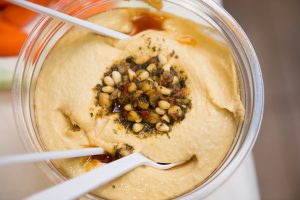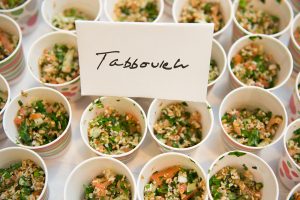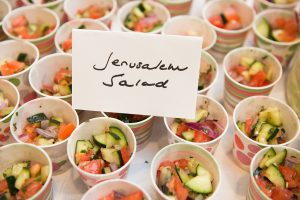Talk about food for thought. This Monday, Jan. 29, 2018, from 6:30 – 8:30 p.m., the Christian-Jewish Council of Greater Charleston in partnership with the College of Charleston will hold its second annual Food and Faith celebration at Arnold Hall in the Jewish Studies Center to promote dialogue between Muslims and Jews. Along with tasty Middle Eastern dishes from both faiths, the council will also provide a forum for better understanding.
“Last year’s event was a tremendous success, both in terms of turnout and the resultant conversations between attendees,” says Mark Swick, community liaison for the College’s Yaschik/Arnold Jewish Studies Program. “The inaugural event took place just days after President Trump announced his controversial travel ban, so there was a heightened sense of need for interfaith dialogue.”
This year’s event is no different. The goal once again is to provide an inviting space where people of all faiths, not just Judaism or Islam, can have a civil, open dialogue. Elijah Siegler, professor of religious studies at the College, will start the evening off by moderating a discussion between Rabbi Michael Davies and Muslim seminarian Haris Qudsi. The talk will focus on the fundamental rituals relating to fasting and feasting in Judaism and Islam, respectively, but it will also touch on commonalities between the two faiths, such as pilgrimage, Holy Days, scripture, charity and prayer. The event is co-sponsored by the Department of Religious Studies, the Yaschik/Arnold Jewish Studies Program, the Jewish Student Union/Hillel, and the CofC Arabic Club.
“Interfaith dialogue is based on the premise that it is good to talk to and listen to people who are not like you, including or especially people who are of a different faith than you,” Siegler says. “This important event is also an example of the real-world application of the academic study of religion – learning about different religions to build community.”
The food – all kosher, halal, vegetarian and homemade – will follow, providing another opportunity for learning. For example, halal, meaning “permitted” in Arabic, and kosher, meaning “proper” in Hebrew, foods are quite similar, with both taking into account the welfare, health and slaughter of an animal before consumption, as well as the general preparation of a dish. Also, followers of both religions cannot consume swine, amphibians, insects or predators. Generally speaking, all kosher foods are accepted as halal, but not all halal-designated foods are considered kosher.
Featured dishes will include:
- Sephardic Veggie Cholent
- Haroset (Passover dish) on lettuce
- Noodle pudding
- Mandel bread
- Fattoush
- Masaaka
- Baklava
- Plus some store bought dates (a traditional break-the-fast food in many Muslim cultures) and hummus and carrots.
Arnold Hall is located at 96 Wentworth St. The event is free and open to the public.
All photos by Reese Moore







